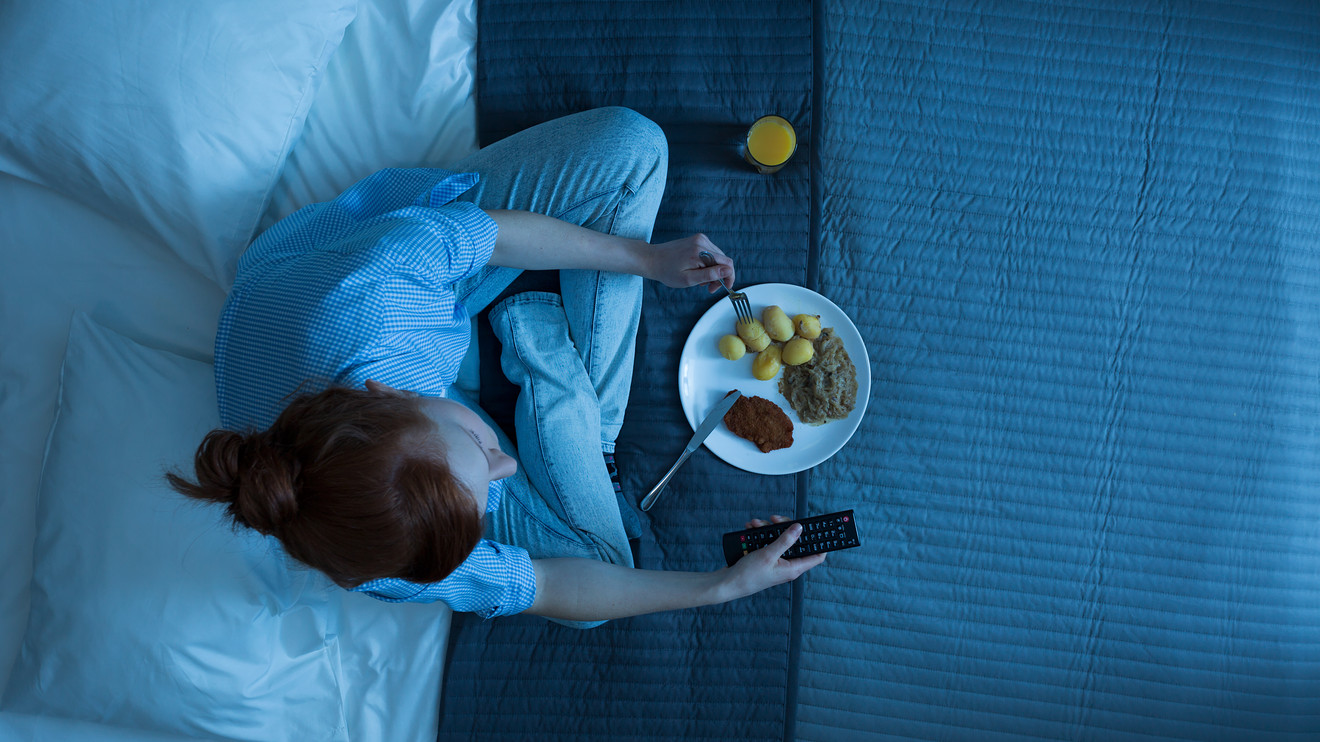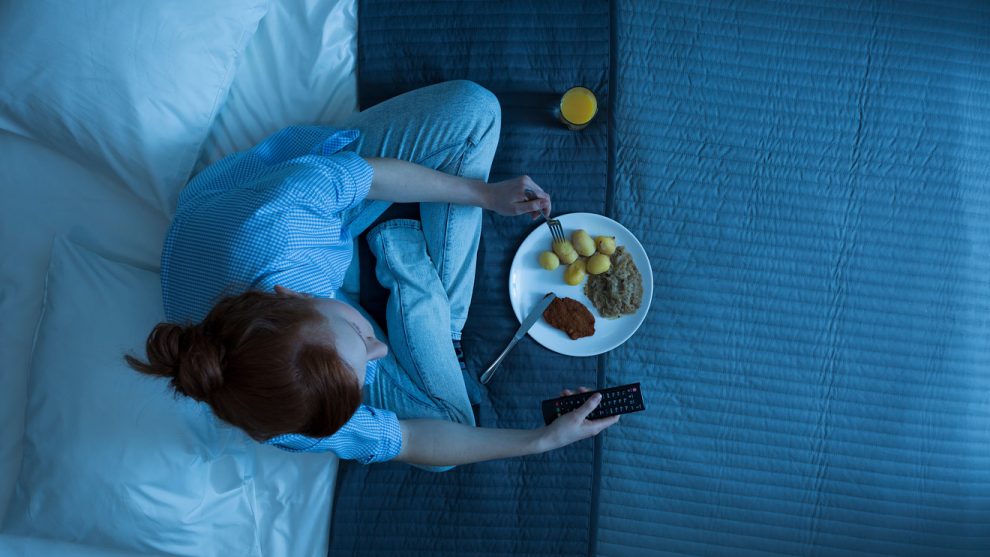
Turn the lights and the TV off during sleep to keep extra weight off.
That’s the takeaway from a new National Institutes of Health report exclusively on women, which finds that sleeping in a room with a light or television on is linked with gaining weight. That’s because, the researchers believe, a sleeper’s circadian rhythm is disturbed and the sleep hormone melatonin is suppressed.
Researchers analyzed data on 43,722 U.S. women ages 35 to 74, who had no history of cancer or cardiovascular disease, and who were not shift workers, daytime sleepers or pregnant when the study began. The scientists took baseline measurements of the subjects’ height, weight and body mass index (BMI) at the beginning of the study period, and recorded those measurements during a follow-up five years later. The women also noted whether they slept with no lights, with a small night-light, with a light shining into the bedroom from outside the room, or with a light or television kept on inside the room.
And the women who nodded off with a light or TV on were 17% more likely to have gained 11 pounds or more over five years. They also had a 22% chance of becoming overweight, and a 33% chance of becoming obese. In comparison, those with just a night-light did not put on weight, and the association between weight gain and a light shining in from outside was much more modest.
“One of the biggest sleep myths is that watching TV before bed is a good way to relax,” said Dr. Rebecca Robbins, a postdoctoral fellow at NYU Langone Health who specializes in sleep, but was not part of the study. “But getting that blue light exposure right before bed causes a phase shift in your circadian rhythm (aka natural body clock), so your body actually fights your urge to go to sleep.”
Related: These are the 3 biggest sleep myths
‘Humans are genetically adapted to a natural environment consisting of sunlight during the day and darkness at night. Exposure to artificial light at night may alter hormones and other biological processes in ways that raise the risk of health conditions like obesity.’
The researchers also found associations between artificial lights at night and getting insufficient sleep, clocking inconsistent bedtime and wake-up times, and taking longer to fall asleep. These behaviors have also been linked to weight gain and obesity, as fatigue the next day can lead to making unhealthy food choices or feeling less motivated to exercise. But the scientists admitted that their findings show a correlation between artificial light and obesity, and not a causation, as more research needs to be done to separate the impact of artificial light from other factors.
For example, Americans will spend more time viewing content on mobile devices than watching TV this year, but this report didn’t parse out the women who fell asleep streaming movies or shows on personal devices via platforms like Netflix NFLX, -1.63% Amazon AMZN, -0.45% and Hulu. Indeed, the blue light from smartphone, tablet and computer screens has been shown to disrupt sleep.
(Also, men were not included in this study.)
The study authors still recommend switching off any artificial lights, bright clocks, or screens in the bedroom while hitting the hay as a useful intervention for obesity prevention.
Related: The average U.S. adult will spend three hours and 43 minutes a day on mobile devices this year
“Humans are genetically adapted to a natural environment consisting of sunlight during the day and darkness at night,” said co-author Dr. Chandra Jackson from the National Institute of Environmental Health Sciences in a statement. “Exposure to artificial light at night may alter hormones and other biological processes in ways that raise the risk of health conditions like obesity.” In other words, the light could be wreaking havoc on hormones in the body that control appetite-suppressing hormones, or the melatonin that helps you sleep, disrupting your body clock and packing on the pounds.
“We do have lots of evidence to confirm that insufficient sleep or poor-quality fragmented sleep is associated with weight gain, and this paper sheds light (pun not intended) on how the bedroom environment might be a contributing factor to poor sleep and potential weight gain,” added Dr. Robbins. “The perfect bedroom would be quite dark, and quiet and cool, which encourages your body to secrete melatonin so that your body slips into a state of relaxation.”
Related: This $8 product may be the secret to a better night’s sleep
Nightlights don’t disrupt sleep because they are often tucked away in a corner, and they emit very low amounts of light, Dr. Robbins explained. But blocking out other artificial light is key to getting a good night’s sleep — and it doesn’t have to be expensive.
“I tell the shift workers I work with, who need to sleep during the day when the sun is out, to put (black) Hefty garbage bags over their windows,” she said. “Another lower-cost option are the blackout shades that you can get at Walmart WMT, +0.82% or Target TGT, +0.47% or thick pieces of fabric, which you can tack onto the back of your existing curtains.” A sleep mask will also do the trick.
Related: Want better sleep? Here’s the No. 1 bed pillow for under $50, according to experts











Add Comment